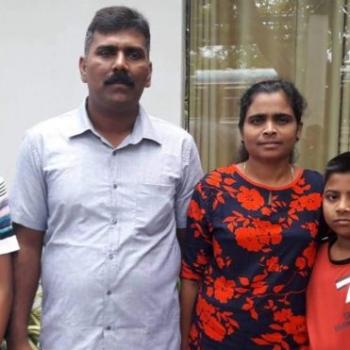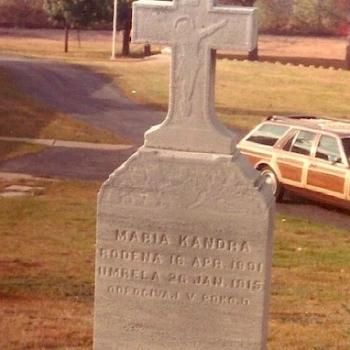This past week, as we’ve watched the news unfolding on our southern border, we’ve been hearing one phrase again and again:
“We are better than this.”
But on Friday, something happened that put that phrase into a different context for me.
I was reading about the great writer and commentator Charles Krauthammer, who died Thursday, far too soon, after a battle with cancer. As many of you may know, it wasn’t the only battle he fought.
When he was just 22 and in medical school, Krauthammer broke his neck in a diving accident. He spent 14 months in recovery, but spent the next 46 years, the rest of his life, in a wheelchair. He gave up his dream of being a medical doctor and instead became a psychiatrist and writer—but one with a particular point of view. He once wrote, “Better to be paralyzed from the neck down than from the neck up.”
He had a gift for empathy. That became clear in 2007 when he wrote about a rising star of baseball named Rick Ankiel.
Rick Ankiel had been the pitcher for the St. Louis Cardinals, but his talent mysteriously disappeared during one playoff game in 2000. He threw several wild pitches, totally missing the plate, and was pulled from the game. His pitching career was over.
Rick Ankiel ended up back in the minors. He struggled to start over. He had several injuries and operations. Finally, after five years, he returned to the majors —not as pitcher, but as a right fielder. In 2007, during one fateful game, Ankiel hit two home runs and caught one fly ball in a move Krauthammer described as “spectacular.”
It offered Charles Krauthammer, the survivor, a chance to say something important about Rick Ankiel, another survivor. Perhaps, he said, Ankiel’s life offers a lesson in “the catastrophe that awaits everyone from a single false move, wrong turn, fatal encounter. Every life has such a moment. What distinguishes us is whether — and how — we ever come back.”
Put another way:
For all our faults and failings and setbacks, all our limitations and weaknesses, we can come back.
We are better than this.
I would argue that nobody understood that more passionately, more persuasively, more powerfully than the man whose birth we mark today: St. John the Baptist.
 We remember him most for the great message he carried into the world, a simple acclamation that called for change. Repent! Turn away from sin. The kingdom is near.
We remember him most for the great message he carried into the world, a simple acclamation that called for change. Repent! Turn away from sin. The kingdom is near.
He was the voice crying out in the desert, saying “Make straight the way of the Lord!”
John told his listeners—and he tells us even today—don’t settle for what you have been.
Look to what you can be.
We don’t have to be crippled by bitterness, anger, pettiness and greed.
We don’t have to turn our backs to God and turn away from those in need—the poor, the helpless, the small, the frightened.
We don’t have to be cruel, or hurtful, or hateful.
Repent, he said.
Be more, he said.
We are better than this.
Pope Francis has spoken of how John’s greatness lay in understanding how to prepare the world for Christ—and that this role belongs not just to a man in the desert 2,000 years ago.
It belongs to each of us, here and now.
By our baptism, we are called to prepare the way of the Lord, and help guide others to Christ. We do it with what we say, what we do and how we live.
It has been said that for some people, you and I are the only Jesus they will ever see.
Well, for many, you and I are the only John the Baptist they will ever meet.
You and I may be the only ones pointing the way, preparing the way, clearing the path, making the case for Christ.
And we make this case to a world where, more and more it seems, the Christian life is neglected or dismissed.
One of the heartbreaking stories we have been seeing and hearing the last few days is about people, especially children, kept in cages.
Well, look around. We live in a world where the human heart has been caged.
We live in a world where life has been degraded to such a point that our society has made it legal to abort the unborn, euthanize the sick, execute the imprisoned, warehouse the elderly, and separate children from their parents — and some people, even Catholics, see this as acceptable or even normal.
No. This isn’t acceptable. It isn’t normal.
We are better than this.
We as Catholic Christians need to remind the world that all of us, as children of God, made in God’s image, are better than this.
We need to remind those who encounter us that the human heart wasn’t meant to be caged—and we can be the key to unlock it.
As much as John the Baptist called for repentence—and recent events show we are a people desperately in need of repentence—he also called for charity. Share your tunics, he said. Share your food.
Uncage your hearts.
I once described John the Baptist in a homily as the “saint of second chances.” Indeed, ours is a faith built on second chances—where confession and penance are cornerstones, and where resurrection and renewal are our foundation and God’s mercy stands above us as our sheltering roof.
As we honor the birth of John the Baptist this Sunday, we need to remember the second chances God gives us all.
Charles Krauthammer and Rick Ankiel showed a way to making the most of second chances in life.
But how can we do that here and now? How can we, like the Baptist, point the way to Christ?
The scripture readings we heard today speak again and again of how, even in the womb, God had plans for John. The psalm carries that idea to the wider world and speaks for all of us:
Truly you have formed my inmost being;
you knit me in my mother’s womb.
I give you thanks that I am fearfully, wonderfully made;
wonderful are your works.
Know this, remember this: We are “wonderfully made.”
John the Baptist understood that. He stood before the world at the crossroads of history and proclaimed: “Repent!”
It’s a message as timely as ever.
It tells us we don’t have to settle for sin.
It tells us we can be more.
It tells us: We are better than this.













